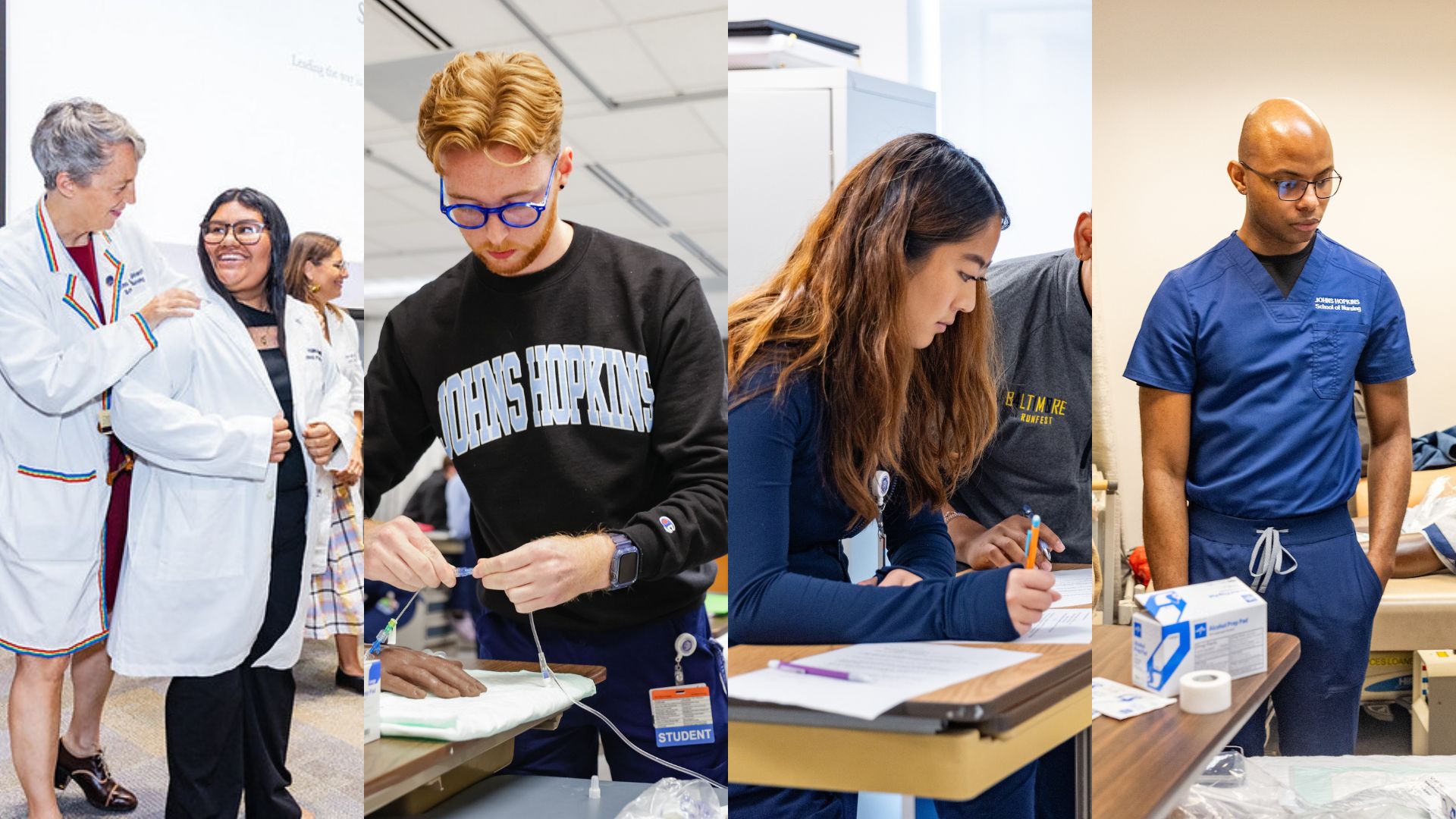The Johns Hopkins School of Nursing (JHSON) has once again been honored among the nation’s most forward-thinking institutions, earning the INSIGHT into Academia Health Professions Higher Education Excellence in Distinction (HEED) Award for the eighth consecutive year and the American Association for Men in Nursing (AAMN) “Best School for Men in Nursing” designation for the seventh year in a row.
This dual recognition celebrates JHSON’s enduring commitment to cultivating a community grounded in inclusive excellence and preparing a future-ready nursing workforce. A spirit of belonging and inclusive practice is evident across every level of the school—from its leadership and curriculum to the students and faculty who reflect the communities they serve. Currently, 35 percent of faculty and 52.2 percent of students represent non-traditional experiences and perspectives that contribute to the foundation of our community’s strength. The school also continues to advance representation, with 168 male students enrolled in 2024, up from 151 the previous year.
“When nurses bring lived experience to their practice, research, and policy work, it leads to care that is more effective, compassionate, and just,” said Sarah Szanton, PhD, RN, FAAN, Dean of the Johns Hopkins School of Nursing. “We are building a nursing workforce that reflect our world and advances health through vision, leadership, and action.”
Worldwide, nurses make up the largest segment of the healthcare workforce and often serve as primary providers of care in rural and underserved communities. Research consistently shows that patients experience better health outcomes and greater trust when their providers share their cultural or community background. These realities underscore why inclusive excellence in nursing education and practice is essential to achieving health equity.
“Belonging begins with action,” said Jermaine Monk, PhD, MSW, MS Mgmt, MA Th, MA, Associate Dean for Diversity, Equity, Inclusion, and Belonging. “We’re empowering future nurses to think beyond hospital walls—to design interventions, lead community initiatives, and advocate for policies that make health possible for everyone.”
As the largest healthcare workforce, nurses are uniquely positioned to address the social and structural factors that shape health. While clinical care accounts for only about 20 percent of a person’s overall health, social determinants such as housing, education, and employment make up the other 80 percent. JHSON integrates these factors across its education, research, and practice—preparing nurses to drive systemic change and close care gaps.
Looking ahead, JHSON continues to prepare nurses as strategic experts, innovators, and policy influencers who can lead at every level of healthcare. Through its investment in inclusive mentorship, faculty development, and interdisciplinary collaboration, the school is shaping a future in which every person, in every community, has the opportunity to live a healthier, more fulfilling life.
About the Johns Hopkins School of Nursing
Located in Baltimore, the Johns Hopkins School of Nursing is a globally-recognized leader in nursing education, research, and practice. In U.S. News & World Report rankings, the school is No. 1 nationally for its DNP program and No. 2 for its master’s. In addition, JHSON is ranked as the No. 3 nursing school in the world by QS World University. The school is an eight-time recipient of the INSIGHT Into Academia Health Professions Higher Education Excellence in Distinction (HEED) Award and a six-time Best School for Men in Nursing award recipient. For more information, visit www.nursing.jhu.edu.
Media Contact:
Sydnee Logan, MA
[email protected]
